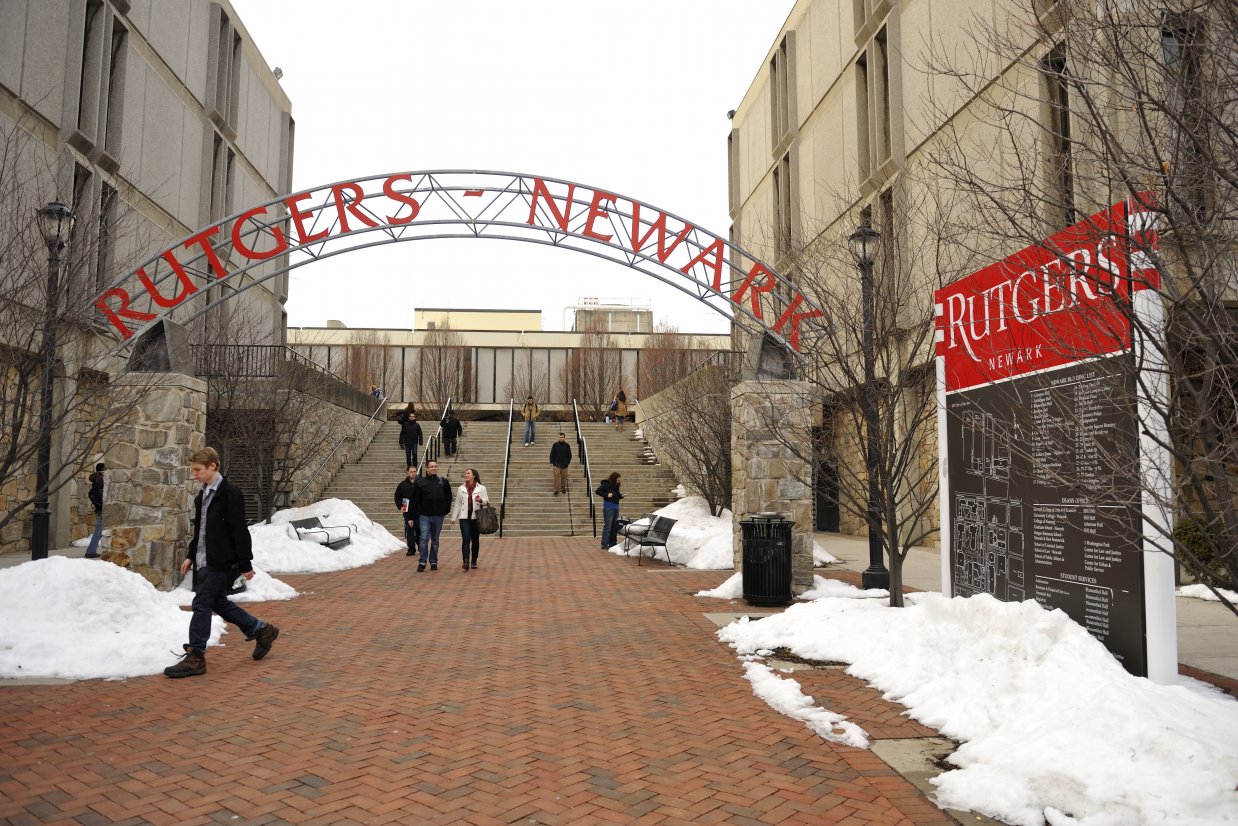Where fake news is born: How Wikipedia spreads hoaxes
08/06/2020 / By News Editors

As Big Tech suppresses conservative views in the name of fighting “fake news,” tech titans like Google and Facebook turn to Wikipedia to provide another “fix” to the problem. Despite messaging from Wikipedia’s owners encouraging this trend, over the years, Wikipedia and its sister sites have pushed hoaxes and false information into the media and academia.
(Article by T.D. Adler republished from Breitbart.com)
There are multiple notable cases in which media reports and academic studies copying off Wikipedia were used to support the claim on the online encyclopedia in a form of circular sourcing named “citogenesis.”
Ever since its inception, Wikipedia has sold itself as the online encyclopedia “anyone can edit” and its owners have attributed the site’s reputed reliability to this factor. Past academic studies have presented Wikipedia as a reliable source of information and Silicon Valley has seized on this reputation to assuage concerns about their platforms being used to disseminate false information. However, various incidents in Wikipedia’s history show that its open-editing model not only has an abysmal track record for preventing long-running falsehoods, but also that it has been a source of fake news itself. There are notable cases in which media reports and academic studies copying off Wikipedia were used to support the claim on the online encyclopedia in a form of circular sourcing named “citogenesis.”
Breitbart News has collected examples of hoax data on Wikipedia that then became fake news in the media, in some cases even in medical journals:
Brazilian Aardvarks
The coati is a Brazilian relative of the raccoon and, at one time according to Wikipedia, called the “Brazilian Aardvark” by some people. In 2008 “some people” referred to a New York teenager who added this alternate name to Wikipedia after mistaking the animal for an aardvark on a trip to Brazil. A New Yorker exposé revealed the hoax and the claim was removed. Before the removal, the bogus claim had appeared in numerous British news outlets (one being cited on Wikipedia in support of the alternate name), Swedish news, a book published by the University of Chicago, and a Scientific American blog.
Despite the New Yorker exposing the fake information and subsequent reporting of the hoax, the “Brazilian Aardvark” name persisted. It still appeared in local British press reports as well as the Guardian, the third most-cited news source on Wikipedia. Most notably, the alternate name is provided in a 2017 academic study published by Brazilian scientific journal Iheringia in its zoological series. This was not the only time a Wikipedia hoax survived beyond its exposure and removal from the site.
Glucojasinogen
In the article for diabetic neuropathy, an edit in 2007 added a fictitious condition called “Glucojasinogen” to the page. The bogus condition subsequently appeared in medical journals from Nigeria, India, and Iran. Following its removal, it appeared in another Indian medical journal, though none of these sources were cited to support the claim as it remained unsourced when it was removed.
The invention of “QALYs”
A quality-adjusted life year is a measurement unit for duration and quality of life in healthcare economics and, according to the Health Policy and Planning journal, was first used in 1976. However, The New Yorker and Financial Times claimed it was invented by economists Christopher Cundell and Carlos McCartney. The discrepancy arose from a Wikipedia edit by a University of Ulster IP address. On LinkedIn, a Christopher Cundell is listed as having studied economics at the university when the edit was made.
The hoax made it to a Serbian journal that was subsequently used as the source for the claim. Following its exposure and removal, the claim was repeated in an Egyptian thesis. It also appeared in the first and second editions of a nursing textbook published by Springer, who boasts of the first edition getting second place in the American Journal of Nursing’s 2013 Book of the Year Award. Its second edition, retaining the false claim, was published in 2017.
Borat the Goldman Sachs Alumnus
Sacha Baron Cohen, known for elaborate comedic characters such as Kazakhstani journalist Borat, has never claimed to work at Goldman Sachs or any other investment bank, but a claim that he did was added to his Wikipedia article in 2006. It was then reported in the Independent. At one point, the claim was removed by a Goldman Sachs IP address, but the Independent and a subsequent Guardian article were then cited for the claim. Even after its removal following exposure and mentions in the New Yorker and Cracked, the hoax lives on at the French Wikipedia where an editor copied it from the English article in 2006 and is now cited to a 2009 article in French daily Le Figaro.
Things Rush Limbaugh Never Said
Hoaxes have also been spread by Wikipedia’s sister site WikiQuote, which contained fake quotes attributed to conservative radio personality Rush Limbaugh. Added back in 2005, the quotes included one praising Martin Luther King Junior’s assassin and another arguing slavery had merits. The quotes endured several months until an editor removed them, noting another quote was adapted from an Adolf Hitler quote. However, the quotes ended up in a blog post and two later ended up in a 2006 book by Jack Huberman. The bogus quotes were restored in 2008 citing the Huberman book and became the subject of repeated edit wars.
When Limbaugh became part of a bid to acquire the St. Louis Rams NFL team, the quotes surfaced in the St. Louis Post-Dispatch before continuing on to Detroit Free Press, the Washington Post, CNN, MSNBC, and many others. After Limbaugh denied and refuted the attribution, these outlets were forced to retract with several defending themselves by essentially saying, “everyone else was doing it.” Limbaugh was subsequently removed from the Rams bid. The Wall Street Journal’s James Taranto stated in response to the controversy “journalists . . . have not only done him wrong but have fallen short of the most basic professional standard.” Edit wars on WikiQuote resumed in light of the controversy and the fraudulent quotes were finally removed. The responsible party later joked about it on Wikipedia.
Framing Breitbart
Breitbart News has also been the subject of a Wikipedia hoax on its own page where left-wing editor “Snooganssnoogans” added a claim in early 2017 that Breitbart promoted the “Pizzagate” conspiracy theory, which claims John Podesta’s e-mails about pizza are coded references to a child sex ring connected to the Clintons. The cited source doesn’t claim this and Breitbart’s only appearance in the article is an embedded tweet from its verified account, which mentioned one of Podesta’s pizza-related e-mails weeks before the conspiracy theories emerged.
However, editors kept the material even after it was challenged. An article in the Independent would later repeat this false accusation along with other negative material copied from Wikipedia’s Breitbart article. One editor suggested citing the article for other claims on the page. Breitbart News has never promoted the Pizzagate conspiracy theory, but just like many other news outlets, it has reported on the connection between the Clintons and the late accused sex offender Jeffrey Epstein. Ironically, Breitbart has been banned from Wikipedia for nearly two years after editors deemed it “unreliable” in a discussion claiming Breitbart publishes “fake news” on its site.
A Casio Watch Made in 1991
Watchmaker Casio released its F-91W watch in 1989, but it had long been reported the watch was made two years later. Outlets such as the BBC, the second most-cited outlet on Wikipedia, and the Guardian presented this release year as a fact. However, watch enthusiasts on reddit and then a Las Vegas news station found the actual release was in June 1989. The error was originally added by editor “2over0” in March 2009. While no source was cited, a student paper from a design course linked at the bottom of the page served as the apparent basis for the claim. The paper itself cited Wikipedia, but the 1991 release year had not been included on Wikipedia at the time. Since the error was exposed and corrected, the New York Times was forced to correct a subsequent news article repeating the 1991 release year.
The Fake News Site Anyone Can Edit
Varying from the silly to the defamatory, Wikipedia’s reputation for hoaxes and false claims has haunted it since 2005 when journalist John Seigenthaler was falsely accused of being a suspect in the Kennedy assassinations. Hoaxes on the site have been able to last nearly a decade or more at times before being detected, lead to an entire set of hoax articles, get high honors after community review, and even end up as the basis for prizes in crowd-funded board games. Sites associated with Wikipedia, such as Wikidata, have had similar problems, such as when Wikidata vandals had First Lady Melania Trump labeled a “sex worker” on the site for a week. Citogenesis, where these hoaxes generate “reliable sources” to then cite on Wikipedia, remains a bigger threat to the reliability of information online than any Macedonian troll farm.
The online encyclopedia’s effectiveness at spreading hoaxes also demonstrates how it can be used to spread bias and spin about subjects to amplify the negative and diminish the positive with a bit of subtle misrepresentation included. Figures and outlets such as Stefan Molyneux, Lucian Wintrich, Candace Owens, and the Gateway Pundit, have all been the subject of a vicious cycle where one dubious edit generates additional citations to use on their Wikipedia pages reinforcing the original edit. Snooganssnoogans, the editor responsible for the hoax about Breitbart, was responsible for several of these incidents.
Wikipedia has the potential to shape coverage of any subject as scientific studies have found it does with scientific research and how Breitbart found it has regarding Mark Levin after his criticism of the Russia collusion investigation and regarding the GamerGate anti-corruption movement in gaming, where news outlets and academic textbooks widely copied the Wikipedia GamerGate page without credit. The site’s celebrated open-editing model also means anyone can take advantage from paid editors to Antifa supporters and Black Lives Matter activists with Wikipedia’s resulting political bias prompting its own co-founder to declare the site’s “neutrality” policy dead.
Read more at: Breitbart.com
Tagged Under: Big Tech, Censorship, deception, disinfo, Facebook, fake news, Google, hoax, lies, mainstream media, propaganda, Social media, Wikipedia
RECENT NEWS & ARTICLES
COPYRIGHT © 2017 BIASED NEWS



















